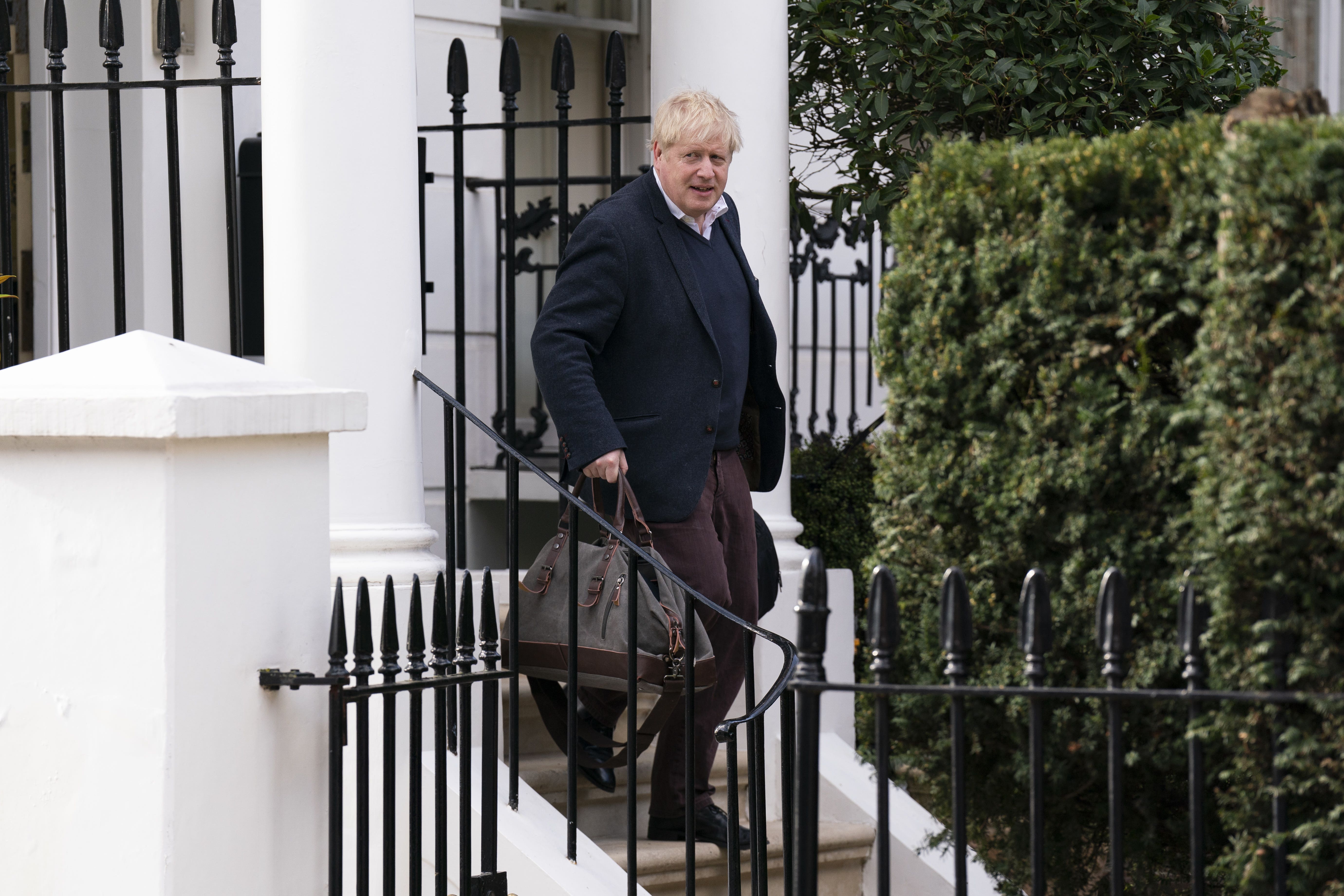What are the key points of the Privileges Committee’s findings on Boris Johnson?
A 106-page report found that the former prime minister deliberately misled Parliament with denials over partygate.

Your support helps us to tell the story
From reproductive rights to climate change to Big Tech, The Independent is on the ground when the story is developing. Whether it's investigating the financials of Elon Musk's pro-Trump PAC or producing our latest documentary, 'The A Word', which shines a light on the American women fighting for reproductive rights, we know how important it is to parse out the facts from the messaging.
At such a critical moment in US history, we need reporters on the ground. Your donation allows us to keep sending journalists to speak to both sides of the story.
The Independent is trusted by Americans across the entire political spectrum. And unlike many other quality news outlets, we choose not to lock Americans out of our reporting and analysis with paywalls. We believe quality journalism should be available to everyone, paid for by those who can afford it.
Your support makes all the difference.A parliamentary report has found that Boris Johnson deliberately misled Parliament with denials over partygate before launching what amounted to an “attack on our democratic institutions”.
The 106-page document covers both the assurances the former prime minister gave to MPs over gatherings in Downing Street during the coronavirus pandemic and his subsequent criticism of the Privileges Committee tasked with investigating his behaviour.
Here are its key points:
– Misleading the Commons
The report finds Boris Johnson misled the Commons in five key ways by:
– Claiming that Covid-19 rules and guidance were followed at all times in Number 10 on four separate occasions;
– Failing to tell MPs “about his own knowledge of the gatherings where the rules or guidance had been broken”;
– Claiming he relied on “repeated reassurances” that rules had not been broken – when in fact just two people had made such a suggestion
– Insisting on waiting for former civil servant Sue Gray’s report to be published before he could answer questions in the House, when he had “personal knowledge which he did not reveal”
– Again claiming rules and guidance had been followed while he was present at No 10 gatherings when he “purported to correct the record” in May 2022.
– Misleading the committee
Mr Johnson misled the committee through the presentation of his evidence, many aspects of which were “not credible”, the report concluded.
“His defence to the allegation that he misled was an ex post facto justification and no more than an artifice,” it said.
Mr Johnson was “disingenuous” towards the group of MPs in putting forward his interpretation of the guidance that his own government had imposed during the pandemic, the report found.
In his evidence, he repeatedly insisted that he thought gatherings in Downing Street were within the rules because they were work events intended to maintain staff morale.
But the committee found it was “highly unlikely” on the balance of probabilities that he genuinely believed all guidance was followed.
– ‘Egregious’ breach of confidence
In a shock resignation on Friday, the former prime minister lashed out at the committee’s provisional findings, having received a draft in advance of its publication.
This in itself, along with attacks on the committee in which he likened it to a “kangaroo court”, amounted to a “further serious contempt”, the report found.
The letter the committee sent him had contained a warning which read: “It is a contempt of the House to reveal the contents of this document” – but within 24 hours he had leaked parts of the draft, it said.
This amounted to “an egregious breach of confidence”, the report found.
– Impugning the committee
In a lengthy exit statement on Friday, Mr Johnson impugned the committee by accusing it of “egregious bias” and likening it to a “kangaroo court”. He insisted it was using its powers to mount a “political hit job” on him.
The report found that in making the accusations when he did, he knew the committee would be unable to make a “substantive response” until the inquiry had finished and his assertions would go “unchallenged”.
It also noted that despite his suggestion that the committee’s process should not continue a “single day further”, he later chose to further engage with the process by sending last-minute representations to the committee at 11.57pm on Monday.
– Being complicit in a ‘campaign of abuse and intimidation against the committee’
Mr Johnson’s “vitriolic” attack on the committee and its work amounted to “an attack on our democratic institutions”, the report found.
He was “insincere” in his attempts to distance himself from a campaign of abuse of committee members, having previously claimed he had “the utmost respect” for its work, it said.
His later broadside in which he claimed its report “reeked of prejudice” was an attempt to undermine the parliamentary process, it concluded.
– Intent
In concluding Mr Johnson deliberately – and not just recklessly – misled Parliament, the committee cited his repeated and continuing denials as well as the frequency with which he “closed his mind” to the facts.
A central point of Mr Johnson’s defence was that no one had raised any concerns with him, but the committee said his principal private secretary, Martin Reynolds, did in fact question directly whether guidance had been followed at all time.
A junior official also told the committee in written evidence that No 10 had been an “oasis of normality” during the pandemic, where a “culture” of ignoring the rules presided.
– Sanction
If Mr Johnson had not pre-emptively resigned, the committee said it would have recommended a 90-day suspension from Parliament – which would have paved the way for a by-election in his constituency.
The committee has recommended he should be barred from getting a parliamentary pass, which is normally available to former MPs.